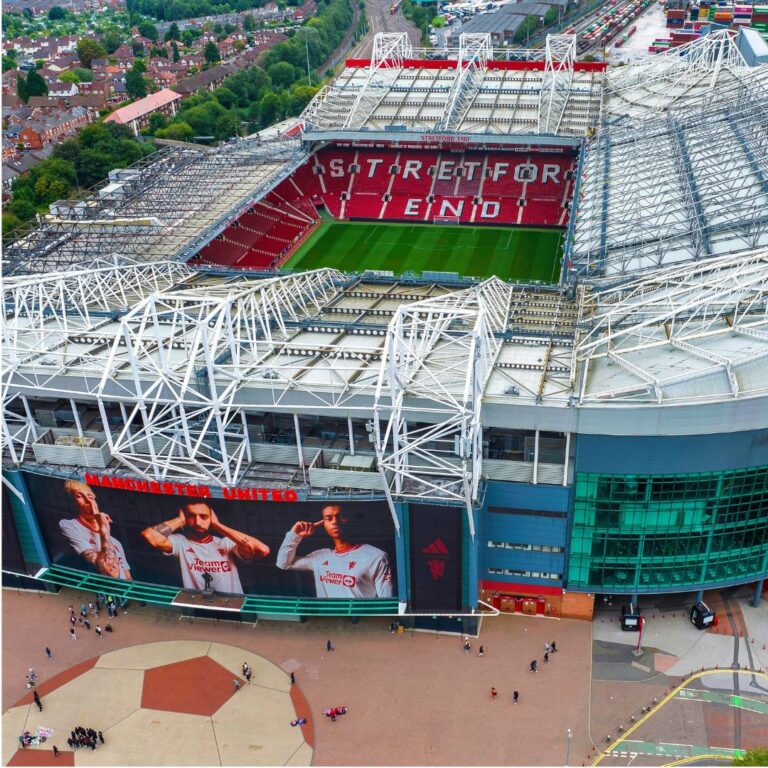Manchester United, one of the most storied and successful football clubs in the world, boasts a rich history filled with triumphs, challenges, and remarkable moments. This article delves into the history of Manchester United, highlighting key milestones and the club’s evolution over the decades.
Early Years and Formation
Manchester United was founded in 1878 as Newton Heath LYR Football Club by the carriage and wagon department of the Lancashire and Yorkshire Railway depot at Newton Heath. The club changed its name to Manchester United in 1902 following financial difficulties and the intervention of local brewery owner John Henry Davies.
- First League Title (1908): Under the management of Ernest Mangnall, Manchester United won their first league title in 1908.
- FA Cup Victory (1909): The club secured its first FA Cup in 1909, further establishing its presence in English football.
Interwar Period and Post-War Success
The interwar period saw fluctuating fortunes for Manchester United, but post-World War II, the club began to rise to prominence.
- Appointment of Matt Busby (1945): The appointment of Sir Matt Busby as manager marked the beginning of a new era. Busby emphasized youth development and attacking football.
- Busby Babes: A talented group of young players, known as the “Busby Babes,” emerged in the 1950s, winning league titles in 1956 and 1957.
Munich Air Disaster and Recovery
The Munich air disaster in 1958 was a tragic event that profoundly affected the club. The crash claimed the lives of eight players and three staff members, along with several journalists and passengers.
- Rebuilding and European Success: Despite the tragedy, Busby rebuilt the team, leading them to their first European Cup victory in 1968, defeating Benfica 4-1 at Wembley.
The Ferguson Era
The appointment of Sir Alex Ferguson in 1986 marked the beginning of the most successful period in the club’s history.
- Domestic Dominance: Under Ferguson, Manchester United won 13 Premier League titles, including a historic treble in 1999 (Premier League, FA Cup, and UEFA Champions League).
- European Glory: Ferguson also guided the team to two additional UEFA Champions League titles in 1999 and 2008.
Modern Era and Global Expansion
Following Ferguson’s retirement in 2013, Manchester United faced challenges in maintaining their dominance but continued to grow as a global brand.
- Commercial Success: The club has leveraged its global fan base and brand strength to secure lucrative sponsorship deals and expand its commercial operations.
- Recent Achievements: Under managers like Louis van Gaal, José Mourinho, and Ole Gunnar Solskjær, the club has won additional trophies, including the FA Cup (2016), EFL Cup (2017), and UEFA Europa League (2017).
Community and Cultural Impact
Manchester United’s influence extends beyond football, with significant contributions to community and culture.
- Manchester United Foundation: The foundation supports various community initiatives, focusing on education, health, and youth development.
- Global Fan Base: The club’s global tours and digital presence have helped build one of the largest and most passionate fan bases in the world.
The history of Manchester United is a testament to resilience, innovation, and excellence. From its early days as Newton Heath to becoming a global football powerhouse, the club has continually evolved and adapted. With a commitment to success on and off the pitch, Manchester United remains a beacon of inspiration and a symbol of footballing greatness.

